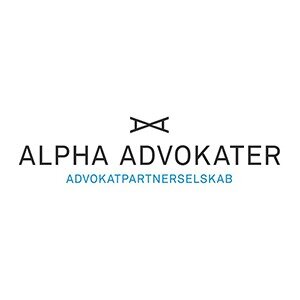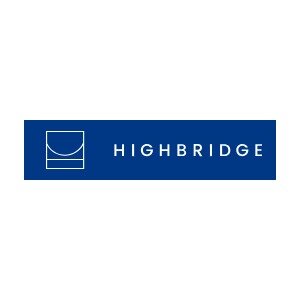Best Communications & Media Law Lawyers in Copenhagen
Share your needs with us, get contacted by law firms.
Free. Takes 2 min.
List of the best lawyers in Copenhagen, Denmark
About Communications & Media Law in Copenhagen, Denmark:
Communications & Media Law in Copenhagen, Denmark, governs the rules and regulations regarding the use of various forms of communication and media. This area of law covers a wide range of topics, including defamation, privacy rights, intellectual property, advertising, and more. It is essential for individuals and businesses engaged in the communications and media industry to understand these laws to ensure compliance with legal requirements.
Why You May Need a Lawyer:
There are several situations where you may require legal assistance in Communications & Media Law. Some common scenarios include handling copyright infringement issues, resolving disputes over defamation or privacy violations, negotiating contracts with media outlets, and more. A lawyer specialized in this field can provide expert advice and guidance to protect your rights and interests.
Local Laws Overview:
In Copenhagen, Denmark, Communications & Media Law is governed by various statutes and regulations, including the Danish Media Liability Act, the Danish Copyright Act, and the Danish Marketing Practices Act. These laws outline the rights and responsibilities of individuals and businesses involved in communication and media activities, and failure to comply with these laws can result in legal consequences. It is important to work with a knowledgeable lawyer who can navigate these laws effectively.
Frequently Asked Questions:
1. What is defamation, and how does it apply to Communications & Media Law?
Defamation refers to the act of making false statements that harm someone's reputation. In the context of Communications & Media Law, individuals and media outlets can be held liable for defamation if they publish defamatory material. It is crucial to understand what constitutes defamation and how to defend against or seek redress for defamation claims.
2. How are privacy rights protected in Communications & Media Law?
Privacy rights are protected in Copenhagen, Denmark, through various laws, including the Danish Data Protection Act and the Danish Act on Processing of Personal Data. These laws regulate the collection, use, and disclosure of personal information by media organizations and individuals. It is essential to understand how to protect privacy rights and comply with data protection laws.
3. What are the intellectual property rights in Communications & Media Law?
Intellectual property rights in Communications & Media Law cover copyrights, trademarks, patents, and trade secrets. These rights protect the creations and innovations of individuals and businesses in the communications and media industry. It is important to understand how to protect and enforce intellectual property rights to prevent unauthorized use or infringement.
4. What are the regulations on advertising in Communications & Media Law?
Advertising regulations in Copenhagen, Denmark, are outlined in the Danish Marketing Practices Act and other relevant laws. These regulations govern the content, format, and placement of advertisements to ensure transparency and fairness in advertising practices. It is crucial to comply with advertising regulations to avoid legal challenges or penalties.
5. How can a lawyer help with contract negotiations in Communications & Media Law?
A lawyer specialized in Communications & Media Law can assist with contract negotiations by reviewing, drafting, and negotiating contracts with media outlets, content creators, advertisers, and other relevant parties. Legal counsel can ensure that contracts protect your rights and interests while complying with legal requirements.
6. What is the process for resolving disputes in Communications & Media Law?
Disputes in Communications & Media Law can be resolved through negotiation, mediation, arbitration, or litigation. It is essential to work with a lawyer who can represent your interests effectively and advocate for a favorable resolution to disputes, whether involving defamation, copyright infringement, breach of contract, or other legal issues.
7. How can I ensure compliance with Communications & Media Law regulations?
To ensure compliance with Communications & Media Law regulations, individuals and businesses should stay informed about relevant laws and seek legal advice when necessary. Working with a lawyer knowledgeable in this field can help you navigate complex regulations and minimize legal risks.
8. What are the penalties for non-compliance with Communications & Media Law?
Non-compliance with Communications & Media Law regulations can result in legal consequences, including fines, injunctions, damages, and court orders. It is crucial to understand and comply with relevant laws to avoid penalties and legal challenges that could harm your reputation or business.
9. How can I protect my intellectual property rights in Communications & Media Law?
To protect your intellectual property rights in Communications & Media Law, you should register copyrights, trademarks, and patents as applicable, use contracts to secure ownership and usage rights, monitor for infringement, and take legal action against unauthorized use. Consulting with a lawyer can help you safeguard your intellectual property effectively.
10. What are the best practices for managing legal risks in Communications & Media Law?
Managing legal risks in Communications & Media Law involves staying informed about relevant laws and regulations, implementing compliance programs, obtaining legal advice when needed, and documenting agreements and transactions. By following best practices and working with a knowledgeable lawyer, you can mitigate legal risks and protect your rights and interests.
Additional Resources:
For additional resources related to Communications & Media Law in Copenhagen, Denmark, consider consulting the Danish Ministry of Justice, the Danish Data Protection Agency, the Danish Media Council for Children and Young People, and local law firms specializing in media and communication law.
Next Steps:
If you require legal assistance in Communications & Media Law in Copenhagen, Denmark, we recommend seeking advice from a qualified lawyer with expertise in this field. You can schedule a consultation to discuss your legal needs, rights, and options for resolving any communication or media-related legal issues effectively.
Lawzana helps you find the best lawyers and law firms in Copenhagen through a curated and pre-screened list of qualified legal professionals. Our platform offers rankings and detailed profiles of attorneys and law firms, allowing you to compare based on practice areas, including Communications & Media Law, experience, and client feedback.
Each profile includes a description of the firm's areas of practice, client reviews, team members and partners, year of establishment, spoken languages, office locations, contact information, social media presence, and any published articles or resources. Most firms on our platform speak English and are experienced in both local and international legal matters.
Get a quote from top-rated law firms in Copenhagen, Denmark — quickly, securely, and without unnecessary hassle.
Disclaimer:
The information provided on this page is for general informational purposes only and does not constitute legal advice. While we strive to ensure the accuracy and relevance of the content, legal information may change over time, and interpretations of the law can vary. You should always consult with a qualified legal professional for advice specific to your situation.
We disclaim all liability for actions taken or not taken based on the content of this page. If you believe any information is incorrect or outdated, please contact us, and we will review and update it where appropriate.

















